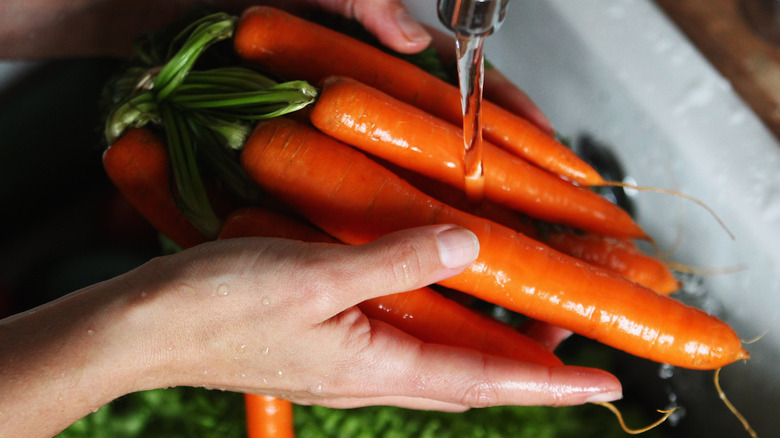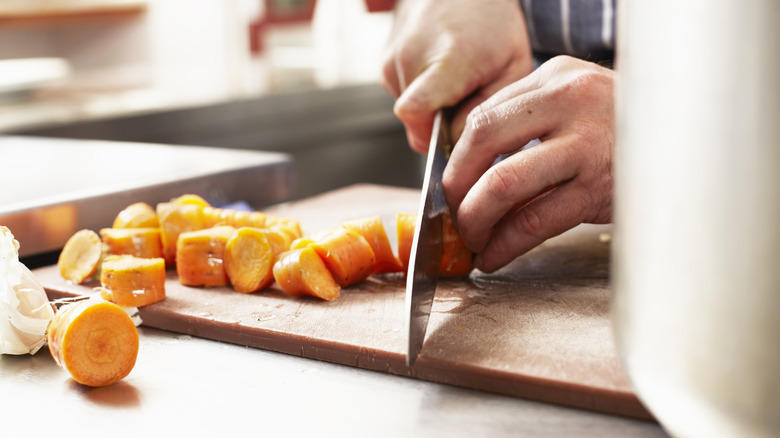The Best Way To Clean Carrots
Food-borne illnesses affect 48 million Americans each year, some of which are the result of contaminated vegetables (via the California Department of Public Health). According to the CDC, eating unwashed vegetables can lead to illnesses, such as Salmonella, Listeria, and E. Coli.
In most instances, raw carrots should be cleaned before they're consumed. If you have a home garden, you can give the carrots a good shake after harvesting them to remove any loose dirt that could follow you inside. To wash them, you must slice off the top of each carrot and place it under warm — but not hot — water. From there, use a brush to remove all potential dirt and bacteria from each section of the vegetable.
However, there's one instance in which you don't have to worry: If you purchase packaged vegetables with a "ready-to-eat" label, they've already been washed. Washing them again certainly won't hurt, but if you're using carrots straight from the ground, just know that they're definitely one of the foods you should be washing.
How to further prepare carrots
After giving your carrots a good cleaning, you'll want to grab that vegetable peeler and get to work. Using a poor peeling technique is one of the most common mistakes people make when prepping vegetables, so be cautious. Hold the carrot over a surface you don't mind getting messy, like a cutting board, and tilt it about 45 degrees. Then, scrape downward from the middle of the carrot toward the board. When you reach the bottom, bring the peeler back up using that same motion until you reach the carrot's center. To protect your hand while peeling the other half of the carrot, simply flip the vegetable upside down and repeat those same steps.
If you aren't eating the carrots raw, you should also learn how to cook them. One simple method is boiling, which takes four to 10 minutes depending on how large your slices are. For example, baby carrots, like the ones you buy packaged, should be boiled for eight to 10 minutes. Another good method is steaming, though you'll have to purchase a steamer basket to do so. Just as carrots are a versatile ingredient for countless recipes, their cooking methods are versatile, as well: You can microwave them, stick them in a slow cooker, or roast them until they reach your desired taste and texture.

